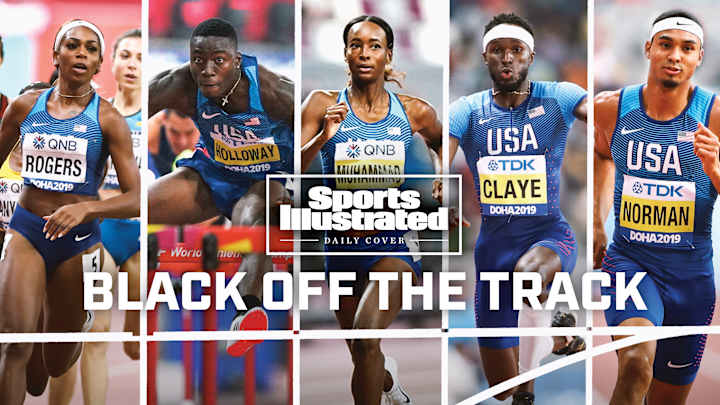Daily Cover: Black Track Athletes Share Their Encounters with Racism in America

While it's interesting to note the successes black athletes have on the field, it's not always highlighted the hardships black athletes have endured off the field. There's no denying that these stories need to be heard now more than ever. SI's Chris Chavez reached out to 14 black Olympians on their stories, the stories that shaped their adulthood and their competition.
Read the full transcript below:
Robin Lundberg: Last week, our Chris Chavez reached out to 14 black track and field athletes and asked three questions that are pertinent in today and, really, have been for a long time. One, to you, what does it mean to be black in America? Two, what was your first or most impactful experience with racism that has shaped you into the person you are today? And three, what are you doing and what do you hope people can do to enact or encourage change in society? Chris, what did you get from the responses to those questions?
Chris Chavez: They were super powerful responses, and I think what really stood out to me was the fact that there were so many overlapping experiences. You know, there were two athletes like Will Claye and Aleec Harris who participate in different disciplines of the sport, but both at some point in their teenage years had guns pulled on by the police or there's Aisha Praught-Leer and Shamier Little having racial slurs yelled at them. So there are some very ugly realities that these athletes have faced in their day to day lives. We see all the awesome moments at the Olympics and the world championships. Yet, this was them taking a step back and giving a glimpse into their day to day lives as black people in America.
Robin Lundberg: Now, as far as those voices being heard right now, did you get any sense from them that this is something that they have been trying to express for a long time, but nobody's actually asked them these questions specifically?
Chris Chavez: You know, that was interesting because I even had to take a step back and realize that I've been covering this sport for nearly a decade and you tell the stories of their accomplishments, but you really don't dive too deep into the childhood experiences and these encounters with racism that really do shape the way that they go about their day to day lives. So, it's been a period of self-reflection for a lot of people, myself included, and listening to this, I think you start to get the feeling despite that maybe last week or those are the previous two weeks, there's been a lot of feelings of sadness and anger. There's optimism and hope that these shared experiences are going to be out there, and these uncomfortable conversations are happening.
Robin Lundberg: Now that people are attempting to take a run in their shoes, if you will.
Chris Chavez: Yeah, and when I think of race day, whether it's at a track meet or a marathon, it's a beautiful thing. You know, everyone is in the stands either rooting for their home country or, you know, particular athletes. You want to see these athletes get the best out of themselves. In the same way that you're rooting for them on the track or whether it's at the Olympics, I think together we are now all on the same exact team and that's everyone versus racism. If you're not on that team, then, I just don't know where your place is for sure.
Robin Lundberg: Chris, appreciate your time, as always.
